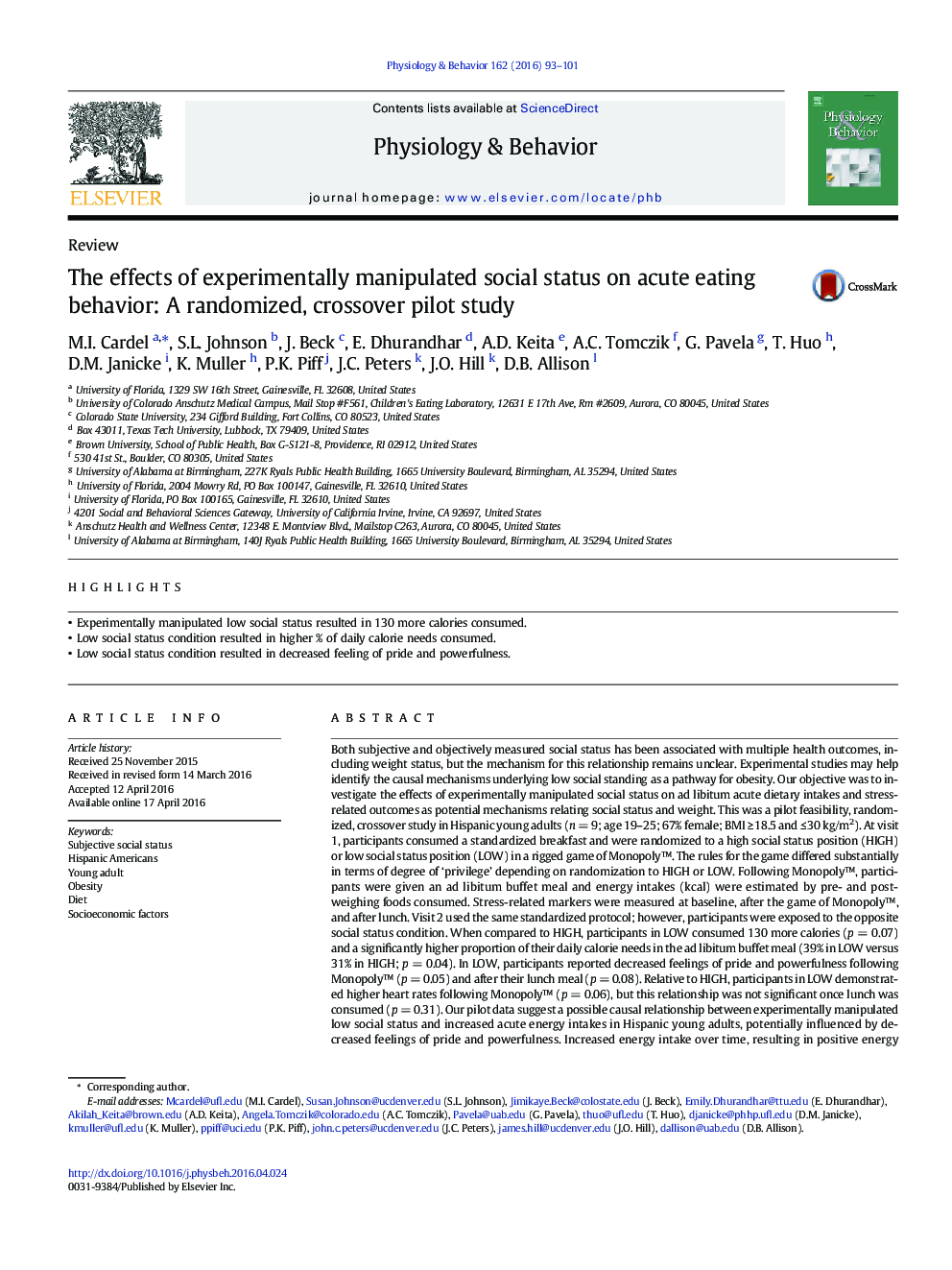| کد مقاله | کد نشریه | سال انتشار | مقاله انگلیسی | نسخه تمام متن |
|---|---|---|---|---|
| 2843905 | 1571156 | 2016 | 9 صفحه PDF | دانلود رایگان |
• Experimentally manipulated low social status resulted in 130 more calories consumed.
• Low social status condition resulted in higher % of daily calorie needs consumed.
• Low social status condition resulted in decreased feeling of pride and powerfulness.
Both subjective and objectively measured social status has been associated with multiple health outcomes, including weight status, but the mechanism for this relationship remains unclear. Experimental studies may help identify the causal mechanisms underlying low social standing as a pathway for obesity. Our objective was to investigate the effects of experimentally manipulated social status on ad libitum acute dietary intakes and stress-related outcomes as potential mechanisms relating social status and weight. This was a pilot feasibility, randomized, crossover study in Hispanic young adults (n = 9; age 19–25; 67% female; BMI ≥ 18.5 and ≤ 30 kg/m2). At visit 1, participants consumed a standardized breakfast and were randomized to a high social status position (HIGH) or low social status position (LOW) in a rigged game of Monopoly™. The rules for the game differed substantially in terms of degree of ‘privilege’ depending on randomization to HIGH or LOW. Following Monopoly™, participants were given an ad libitum buffet meal and energy intakes (kcal) were estimated by pre- and post-weighing foods consumed. Stress-related markers were measured at baseline, after the game of Monopoly™, and after lunch. Visit 2 used the same standardized protocol; however, participants were exposed to the opposite social status condition. When compared to HIGH, participants in LOW consumed 130 more calories (p = 0.07) and a significantly higher proportion of their daily calorie needs in the ad libitum buffet meal (39% in LOW versus 31% in HIGH; p = 0.04). In LOW, participants reported decreased feelings of pride and powerfulness following Monopoly™ (p = 0.05) and after their lunch meal (p = 0.08). Relative to HIGH, participants in LOW demonstrated higher heart rates following Monopoly™ (p = 0.06), but this relationship was not significant once lunch was consumed (p = 0.31). Our pilot data suggest a possible causal relationship between experimentally manipulated low social status and increased acute energy intakes in Hispanic young adults, potentially influenced by decreased feelings of pride and powerfulness. Increased energy intake over time, resulting in positive energy balance, could contribute to increased risk for obesity, which could partially explain the observed relationship between low social standing and higher weight. Larger and longitudinal studies in a diverse sample need to be conducted to confirm findings, increase generalizability, and assess whether this relationship persists over time.
Journal: Physiology & Behavior - Volume 162, 1 August 2016, Pages 93–101
